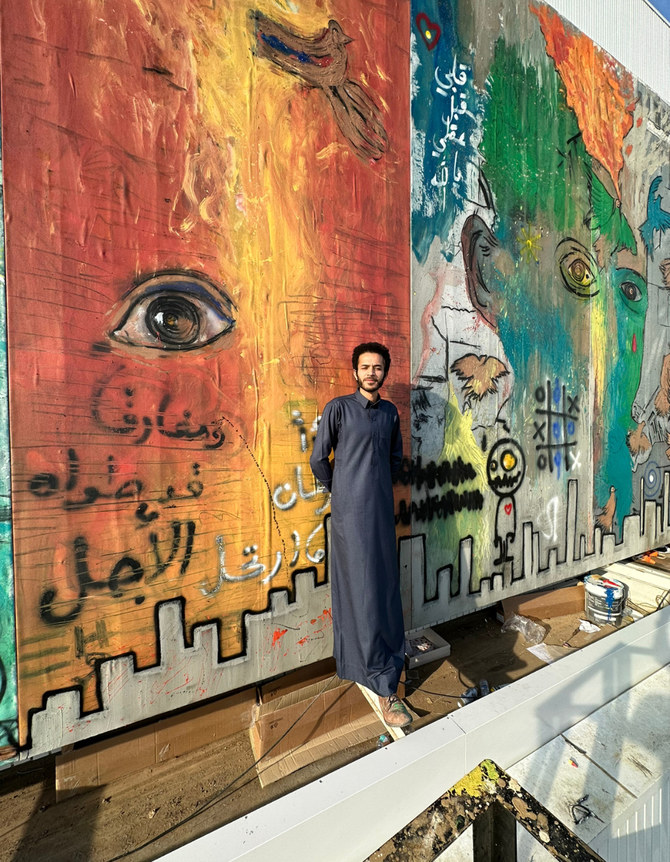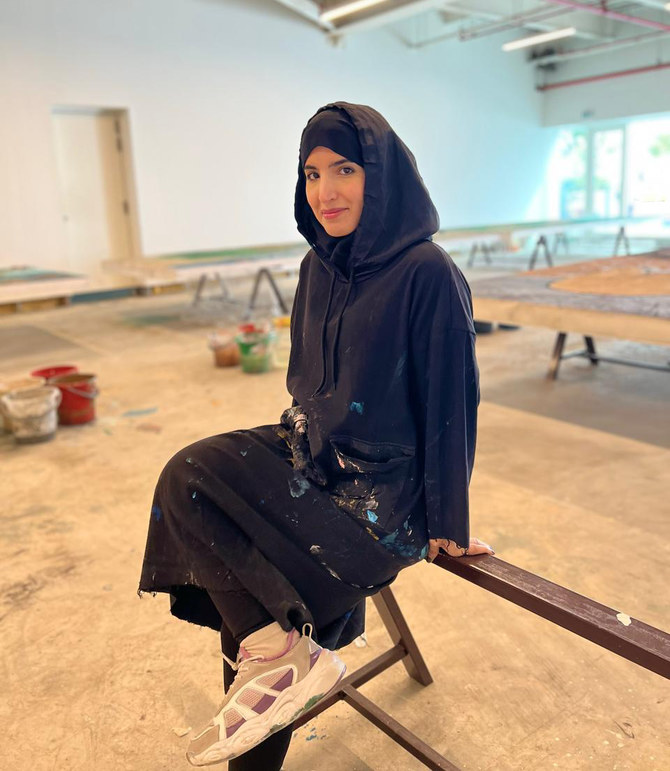RIYADH: Saudi artist Mohammed Al-Faraj was one of the 80 artists chosen by Hayy Jameel to create a 25-meter art installation in Jeddah.
“The Face of the City,” which was revealed mid-January, will remain on view in front of the Hayy Jameel building for the remainder of the year.
Developed by creative hub Art Jameel, Hayy Jameel is a mixed-use creative complex for art in Jeddah.
The second edition of the center’s annual program, the Hayy Jameel Facade Commission, gives the chosen artist the chance to create artwork that will be showcased for a year.
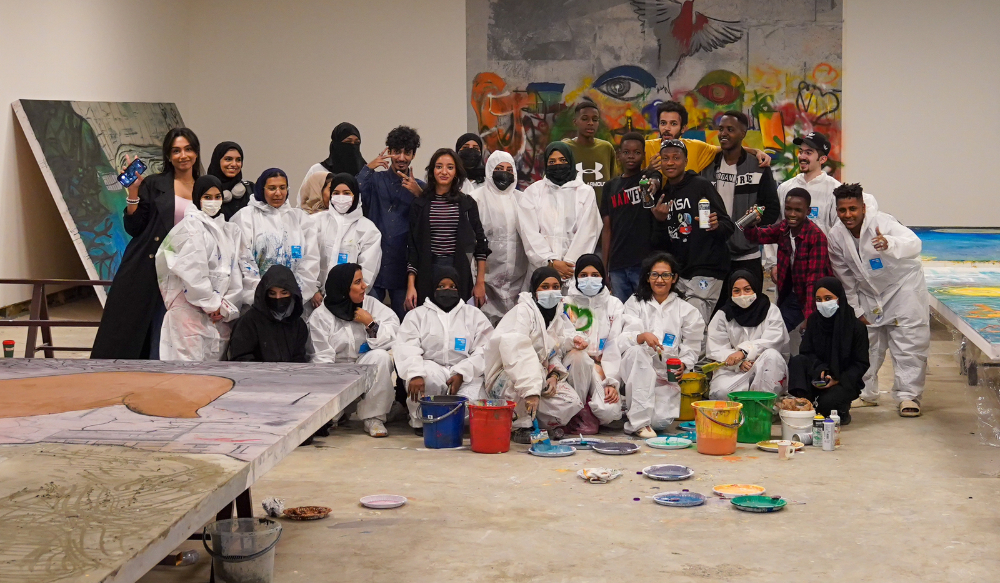
Sixty members of the community and three artists created the 25-meter installation. (Supplied)
“When I heard the news about Hayy Jameel’s proposal competition, I felt this impulse to immediately apply,” the 29-year-old artist from Al-Ahsa told Arab News.
Al-Faraj, a mechanical engineering graduate from the King Fahad University of Petroleum, is known for his art, filmmaking, photography and writing across the Kingdom and Dubai.
HIGHLIGHT
‘The Face of the City,’ which was revealed mid-January, will remain on view in front of the Hayy Jameel building for the remainder of the year.
The young artist has previously worked with galleries in the Eastern Province and Makkah, receiving multiple awards for his endeavors.
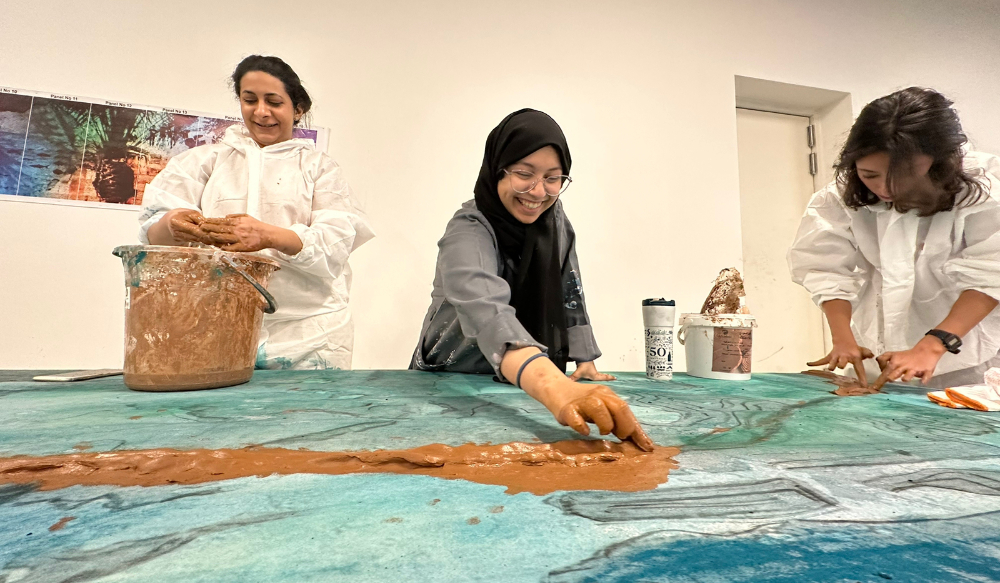
Participants using their hands to paint on the 25-meter canvas. (Supplied)
In 2012, he received his first award for the Colors of Saudi photography competition “Development and Advancement.”
In 2015, he won the Golden Palm in the Saudi Film Festival student category for his fil “LOST” and was winner of the Crossway Foundation competition “Encountering Another World” in London.
He also received an honorable mention in the Plural+ youth video festival in New York in 2015.
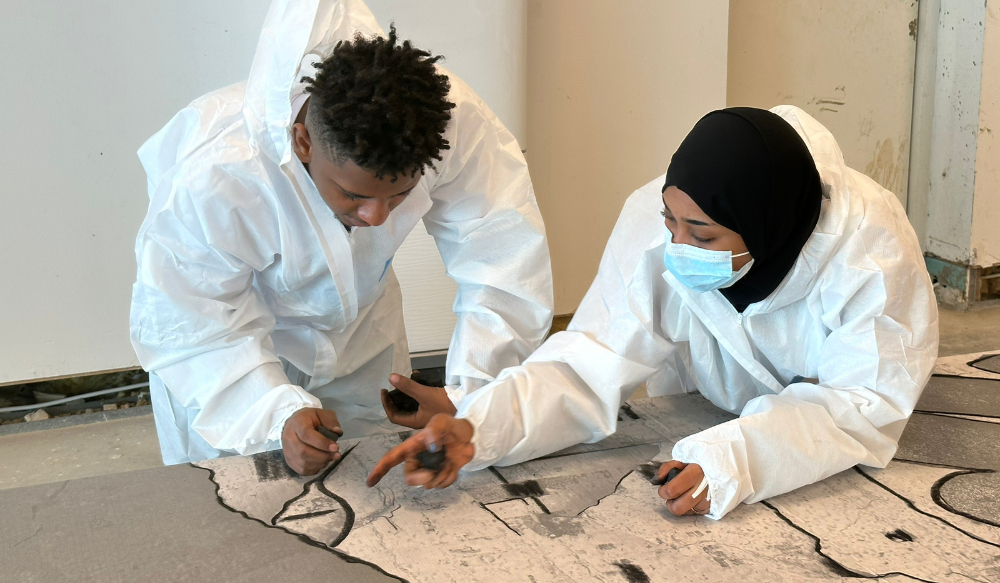
Participants using their hands to paint on the 25-meter canvas. (Supplied)
Al-Faraj said that he kept his proposal simple, wanting to highlight his previous photography and writings inspired by the city.
He urged the community to join him in creating the piece.
“By the hands of the people of Jeddah, the project will pay homage to the city and its people, celebrating its past and its future of endless possibilities,” Al-Faraj said.
“I wanted the piece to be like a coloring book. The outlines of the drawings were all in black and white,” he said.
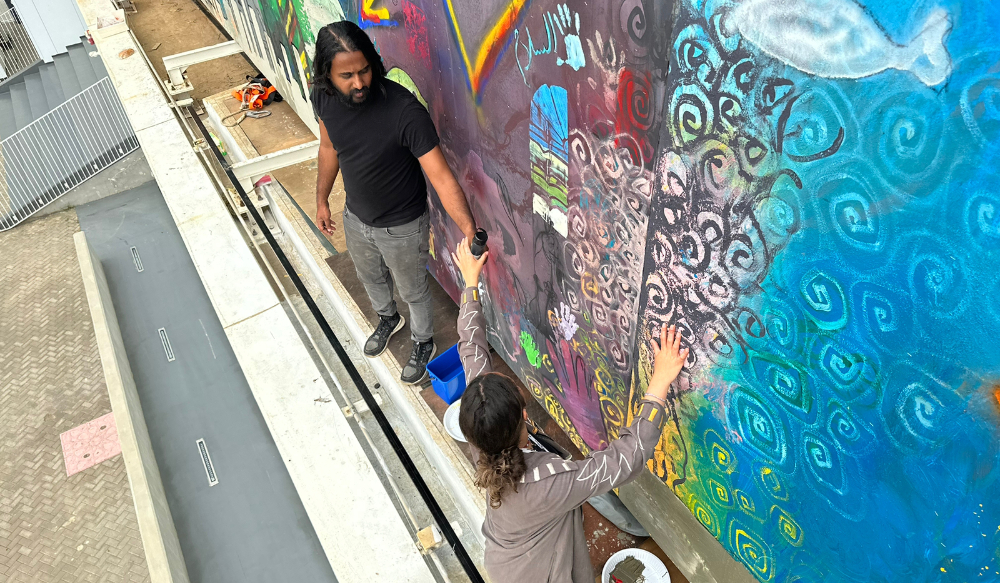
Participants using their hands to paint on the 25-meter canvas. (Supplied)
Al-Faraj invited two Saudi female artists, Nada Al-Ali and Omaima Al-Mazroui, as well as 60 other members of the community, adults and children, to work as co-authors in creating the artwork.
“Until now, I have not forgotten that feeling — a mixture of pride and happiness. I felt the joy of everyone who worked on it, even the children,” said Al-Ali, describing it as one of the best moments of her life.
By the hands of the people of Jeddah, the project will pay homage to the city and its people, celebrating its past and its future of endless possibilities.
Mohammed Al-Faraj, Saudi artist
The drawing and painting process took approximately two weeks and eight hours per day to finish.
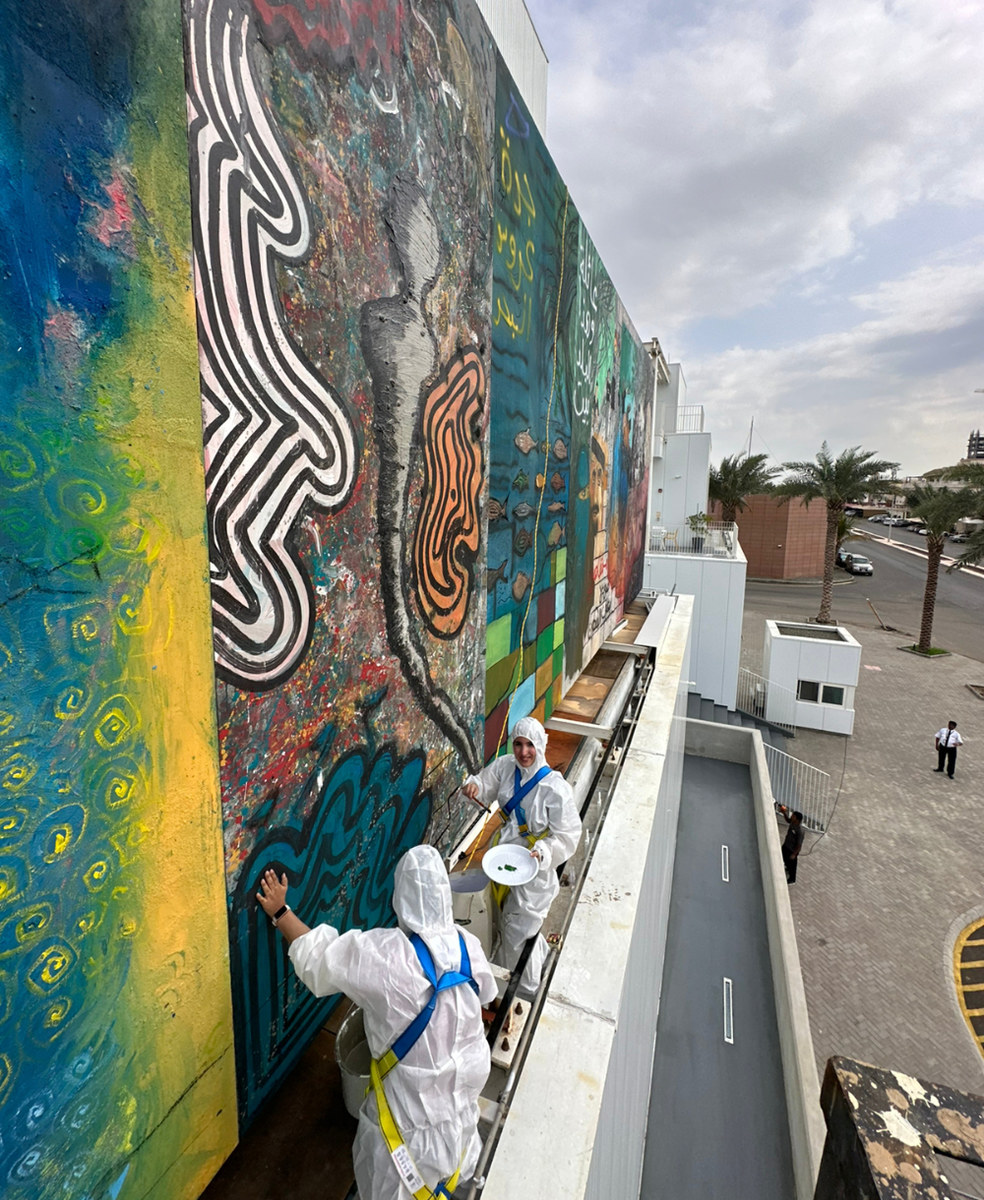
Participants using their hands to paint on the 25-meter canvas. (Supplied)
In the first week of the project, adults and children worked on the canvas, and in the second week, the three Saudi artists gave it its final touches.
Al-Marzoui said that the contribution was a “rich experience” in all its stages, as the participants connected with the artwork on a personal level and were able to express their creativity while painting.
“It made me teary-eyed seeing the intense efforts during those seven days. Everyone was working in harmony. Each participant had their own story to share that will touch the hearts of those who will pass by the neighborhood,” said Al-Mazroui.
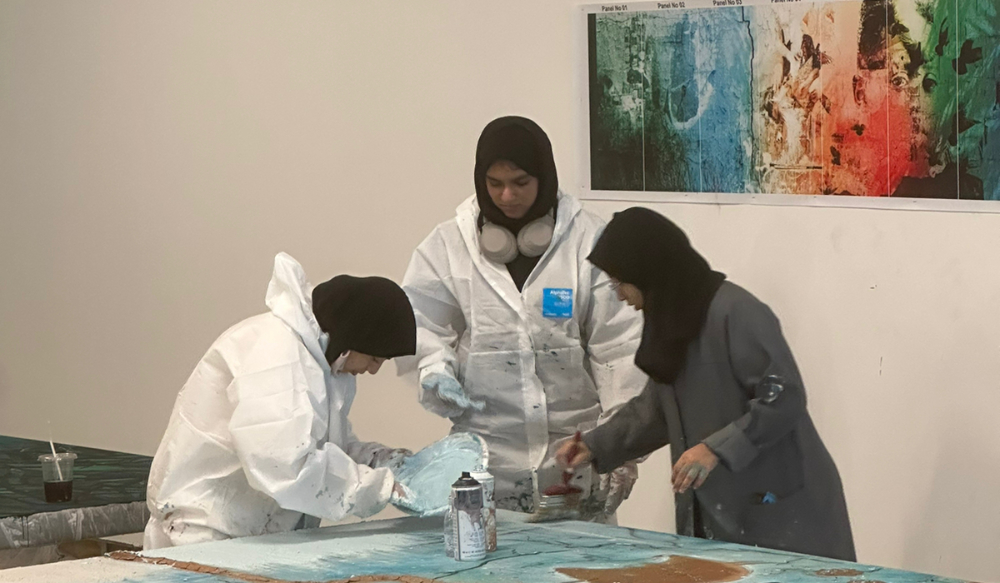
Participants using their hands to paint on the 25-meter canvas. (Supplied)
Al-Faraj has been part of the art industry since 2015, experiencing the evolution of the creative space. He expressed his admiration for the Kingdom’s generous support toward artists.
“The future of art and culture in Saudi Arabia is extraordinary,” said Al-Faraj. “The Kingdom has always had a strong cultural production, especially in poetry and creative writing.”
He advised young artists to experiment every single day to enhance their artistic capabilities and to continue to “be fascinated by ideas, imagination, and the possibility of sharing your experiences.”


